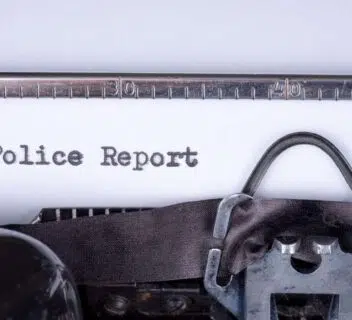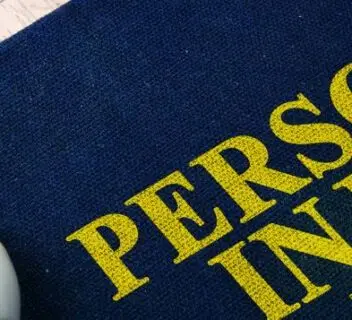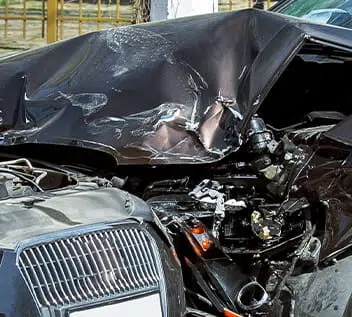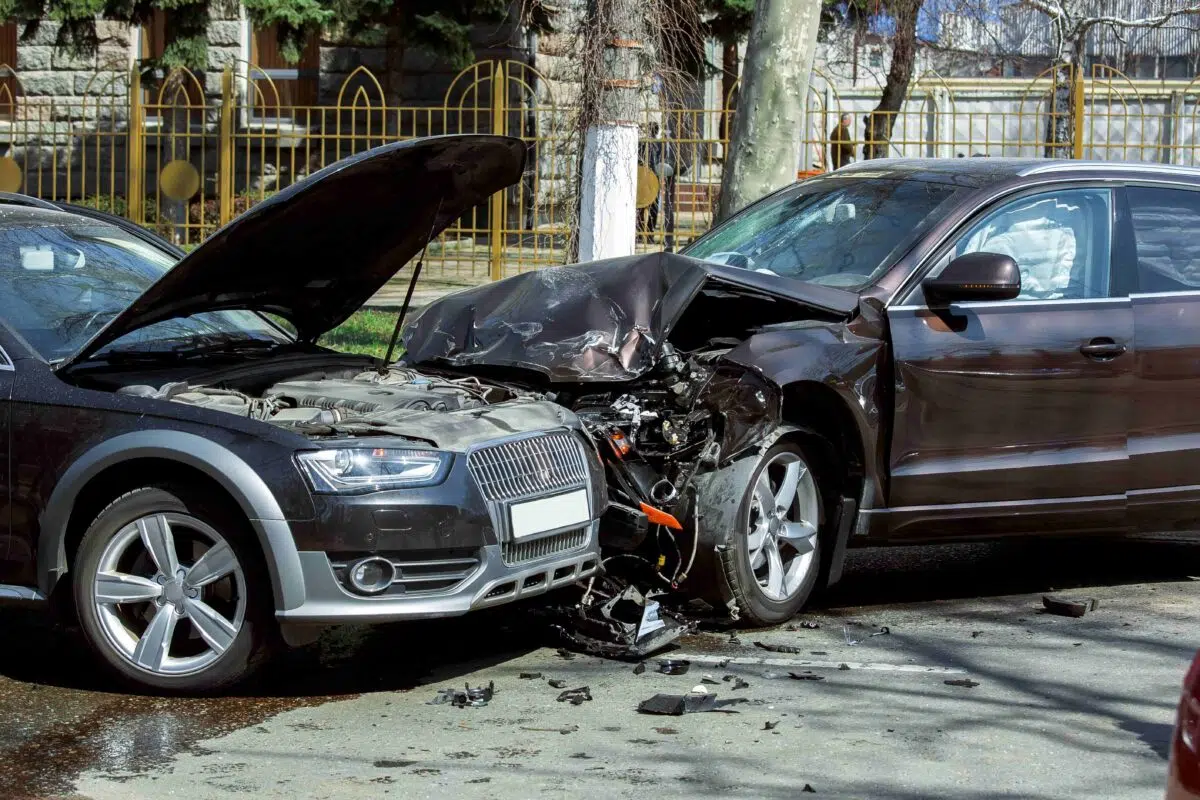Trying to figure out how to get a car accident police report? This document is key for insurance claims and legal documentation. In this guide, we outline why it’s important and the steps you need to take to request it promptly.
Key Takeaways
- A car accident police report is essential for insurance claims and legal documentation, offering an unbiased account that can significantly influence settlement outcomes.
- To obtain a police report, gather necessary information such as the accident date and location, identify the responding law enforcement agency, and request the report through appropriate channels.
- Costs and processing times for obtaining a police report vary by jurisdiction, with reports typically available within 3 to 7 days, though complex cases may take longer.
Importance of a Car Accident Police Report
A car accident police report is a vital piece of evidence for insurance claims and legal documentation. It offers an unbiased account of the accident, capturing details that can support your case. Insurance companies depend on these reports to verify statements and determine liability, significantly influencing your settlement outcome in car accidents.
A police report not only provides an impartial record but also serves as critical evidence in court. A detailed report strengthens your position by providing a clear narrative of the events, proving fault, and helping secure the compensation you deserve through effective reporting.
Additionally, having a police report can expedite your claim processing and possibly increase your compensation. Insurance firms often reject claims without a police report, underscoring the importance of obtaining this document for a smooth and successful insurance claim after an auto accident.
Steps to Obtain a Police Report After a Car Accident
Wondering how to get a car accident police report? Acquiring a police report after a car accident involves several steps, each crucial for securing the necessary documentation:
- Gather all required information about the incident.
- Identify the responding law enforcement agency.
- Request the report through the appropriate channels.
While these steps may seem straightforward, each involves specific details that can streamline the process. Following this guide will help you navigate the complexities efficiently, ensuring you get the report when you need it.
Gather Necessary Information
Requesting a police report requires important details about the accident, such as:
- The date
- The time
- The location
- Information about all parties involved
Having this information handy will expedite the process and ensure timely processing of your request to pay immediately on behalf of your contact’s needs.
Police officers also document personal data and statements from all drivers involved, passengers, and persons at the scene. This comprehensive information forms the basis of the police report and is crucial for completing the request accurately.
Identify the Responding Law Enforcement Agency
Identifying the law enforcement agencies that responded to the accident is essential. This can usually be determined by looking at the report or contacting the local police department. Knowing the law enforcement agency responded ensures your request is directed correctly.
When making the request, having the precinct information, badge number, and phone extension of the responding officer is helpful. This background information aids in quickly and efficiently locating the report.
Request the Report
Police reports can be requested through various methods, including online submissions, in-person requests, or by mailing a request form. For instance, Baltimore offers an online portal for reports from January 1, 2011, onward. Older reports require email requests.
Other incident reports in Baltimore can be obtained by filling out a request form or by email. Individuals can also visit the police station or courthouse to pick up a copy of the accident report.
Having all necessary documents and information ready will expedite the process. This includes the service number or reference number of the report, obtainable from the responding officer.
What to Do If You Can’t Find Your Police Report
If you can’t find your crash report, don’t panic. There are steps you can take to locate it. If the responding officer is unavailable, call the police department’s general inquiry line or the local courthouse to inquire about the procedures.
You can also check with your insurance company, as they may have a copy of the police report. In some areas, the Department of Motor Vehicles might also have a copy of the motor vehicle police report.
Can You Get a Police Report Online?
In many states, requesting a police report online is possible and convenient. For example, the Ohio Department of Public Safety offers an online system for car accident reports. Similarly, in Georgia, you can order a report through the Georgia Department of Public Safety website.
Obtaining a crash report online is typically free, although some states might charge a fee for certified reports. However, online police reports in some states, like North Carolina, are not certified.
Costs Associated with Obtaining a Police Report
The cost of obtaining a police report varies by jurisdiction and method of request. For instance, in Florida, the fee is $10, with additional service fees for mail requests. In New York, obtaining a crash report online incurs a $22 fee, including a $7 search fee and a $15 report fee.
Some jurisdictions allow individuals involved in the accident to access reports for free, while others charge a nominal fee. In North Carolina, the fee for obtaining a police report in person or by mail is $6.50.
How Long Does It Take to Receive a Police Report?
The time to receive a police report varies. Typically, a report may be ready within 3 to 7 days following an accident. In some areas, reports for minor accidents without injuries can be processed faster, often in about 3 to 5 days.
However, delays can occur due to missing information or the need for further investigation. For example, the Baltimore Police Department aims to fulfill report requests within 30 days, although some may take longer. More complex incidents, like those involving injuries or fatalities, may take weeks or even months to complete.
Role of a Car Accident Lawyer in Obtaining a Police Report
A car accident lawyer can greatly simplify the process of obtaining a police report by:
- Assisting in gathering necessary documents
- Navigating legal complexities
- Leveraging their legal knowledge to expedite the retrieval of crash reports and other essential documentation.
A car accident lawyer can also negotiate with insurance companies to ensure claims related to the police report are handled efficiently. This helps accident victims receive the compensation they deserve without the added stress of dealing with insurance adjusters, especially when an at-fault driver is involved.
Wondering how to get a car accident police report? Contact 1-800-THE-LAW2 today for a free consultation with an experienced car accident attorney in our network.
Additional Evidence to Collect After a Car Accident
Collecting additional strong evidence after a car accident is crucial for building a strong case. Witness statements can support the victim’s account of the accident scene. Photographic evidence of the scene can clarify vehicle positions, vehicle damage, and surrounding conditions.
An attorney can assist attorneys in acquiring critical evidence, such as police reports, essential for establishing liability in the event of an injury. Gathering comprehensive evidence alongside the police report can greatly enhance your insurance claim or legal case. Additionally, you can schedule a free consultation to discuss your situation further.
Summary
In summary, obtaining a police report after a car accident is a crucial step in protecting your rights and ensuring your insurance claims are processed smoothly. By following the steps outlined in this guide—gathering necessary information, identifying the responding law enforcement agency, and requesting the report—you can navigate the process efficiently.
Remember, having a car accident lawyer can simplify the process and provide additional support in negotiating with insurance companies. Collecting additional evidence, such as witness statements and photographic documentation, can further strengthen your case. Armed with this knowledge, you’re better prepared to handle the aftermath of a car accident with confidence and clarity.
Frequently Asked Questions
A police report is crucial after a car accident as it offers an unbiased account of the incident, serving as essential evidence for insurance claims and legal purposes.
To request a police report, you may submit an online request, visit the police department in person, or send a request form via mail. Be sure to check your local police department’s website for specific instructions and requirements.
If you cannot find your police report, it is advisable to contact the police department’s general inquiry line or your local courthouse for assistance. Additionally, you may want to check with your insurance company or the Department of Motor Vehicles.
Yes, you can typically request a police report online in many states, but the certification status and availability may differ by location. Be sure to check your state’s specific system for details.
The cost to obtain a police report typically ranges from $6.50 to $22, depending on the jurisdiction and the method of request. It is advisable to check with your local police department for specific pricing.















